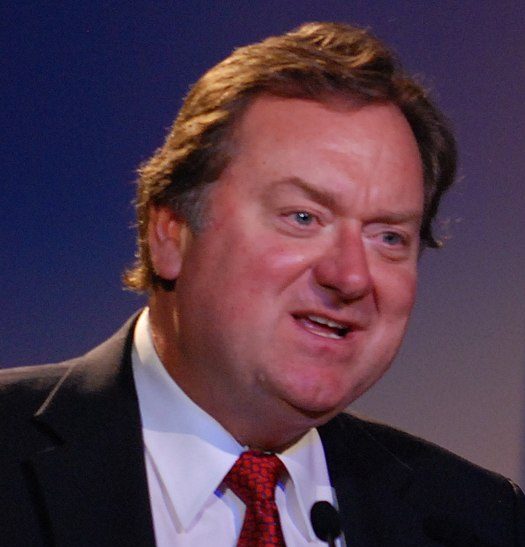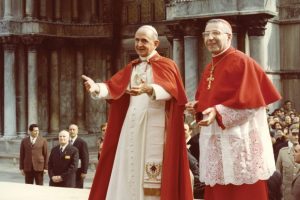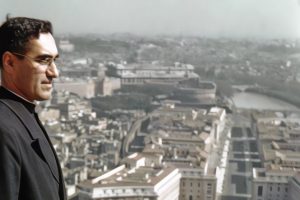Of the many diversions tempting me to miss Sunday Mass, perhaps the greatest is the Sunday morning talk shows. As a self-confessed political junkie, I have been addicted to television news programs since before 24-hour coverage from Fox News and MSNBC. Ironically the most enticing of those temptations over the years was fellow Catholic Tim Russert, the longtime moderator of NBC’s Meet the Press, who died of a heart attack this summer at the too-young age of 58.
After 16 years of weekly broadcasts, many viewers—myself included—felt like we knew Russert. He was professional yet folksy, a hard-hitting journalist but also an unpretentious Irish-Catholic boy from Buffalo.
In the hours of public mourning after his death, more than a few eulogizers focused on Russert’s faith. His faith was a rarity in his field, yet many journalists and political insiders grew to respect Russert’s commitment to Catholicism. A Catholic News Service obituary highlighted his ties to Catholic schools, including how a Sister of Mercy gave him his first reporting job in seventh grade by appointing him editor of the new school newspaper at St. Bonaventure School in Buffalo.
Other quaint Catholic connections included stories about Sacred Heart pictures in his childhood home, his promise to God to never miss weekly Mass if his son was born healthy, his appearance on behalf of various Catholic charitable organizations, and his enthusiasm over meeting Popes John Paul II and Benedict XVI (“Can you believe it, two kids from Buffalo meeting with the pope!” he reportedly whispered to CNN reporter Wolf Blitzer before meeting the current pontiff).
As inspirational as those Catholic connections are, they are not, however, why I see Russert as a role model for contemporary Catholics. Rather, it was the way he embraced his work as a calling no less serious or less Catholic than one to the priesthood or religious life. In a society where television journalists are hired for their hair color, Russert believed in and embodied journalism’s ideals: the importance of truth-telling and of serious consideration of the issues that affect the least in our society.
Russert even described his work as a vocation. “We have an obligation [to] all those men and women who work hard all week long in real jobs, that when they turn on CNN or turn on NBC or pick up a newspaper or turn on the radio, they realize that someone else is working as hard as they are trying to get to the truth,” he said in a 2006 interview with Larry King. “And it is not an easy job, but you know what, Larry, it is the best one you could ever have. It is a vocation being in journalism.”
And this vocation came from God. In an essay titled “Am I doing God’s work?” Russert quoted another prominent Washington Catholic, John F. Kennedy, to answer that question: “Let us go forth to lead the land we love, asking his blessing and his help, but knowing that here on earth God’s work must truly be our own.”
I, too, got into journalism because I felt called by God to change the world by educating people about issues that matter. I eventually followed those ideals into the Catholic press, where I wrote about issues of faith, spirituality, and social justice. Inspired by the likes of Russert, I joined a profession with high ideals and not-so-high salaries.
Russert earned more than most. After working on two political campaigns, he went straight to the big time, joining NBC News as a vice president. When he later took over Meet the Press, the show expanded from a half hour to a full hour, with a focus on in-depth interviews. It became the must-do appearance for politicians and commentators from across the political spectrum. Russert was known for his extensive research and his penchant for putting people on the hot seat.
Despite this “gotcha” style, he was well-loved for being fair and decent, traits not often cited in reference to journalists these days. While some may remember him for coining the terms “red states” and “blue states,” his legacy will be that he did these things with passion and with a sense of responsibility for all those blue-collar folks still in Buffalo.
Russert was not perfect, and I’m not nominating him for sainthood. In recent years he got a little too chummy, in my opinion, with the Washington insiders he interviewed. Some say he could have pressed harder before the Iraq War, and there are questions about his role in the leak of CIA operative Valerie Plame’s identity.
Still, though he may have made mistakes, I believe Russert did his best in service of the common good. He took his job seriously and did it well—inspiration for all of us, whether journalists or not.
Perhaps the best tribute to his memory would be for all Americans to take our responsibility as citizens seriously in this election that Russert sadly did not live to cover.
This article appeared on the October 2008 issue of U.S. Catholic (Vol. 73, No. 10, pages 47-48).
Image: hyku from Winter Haven, FL, USA – Flickr, CC BY-SA 2.0, via Wikimedia Commons














Add comment